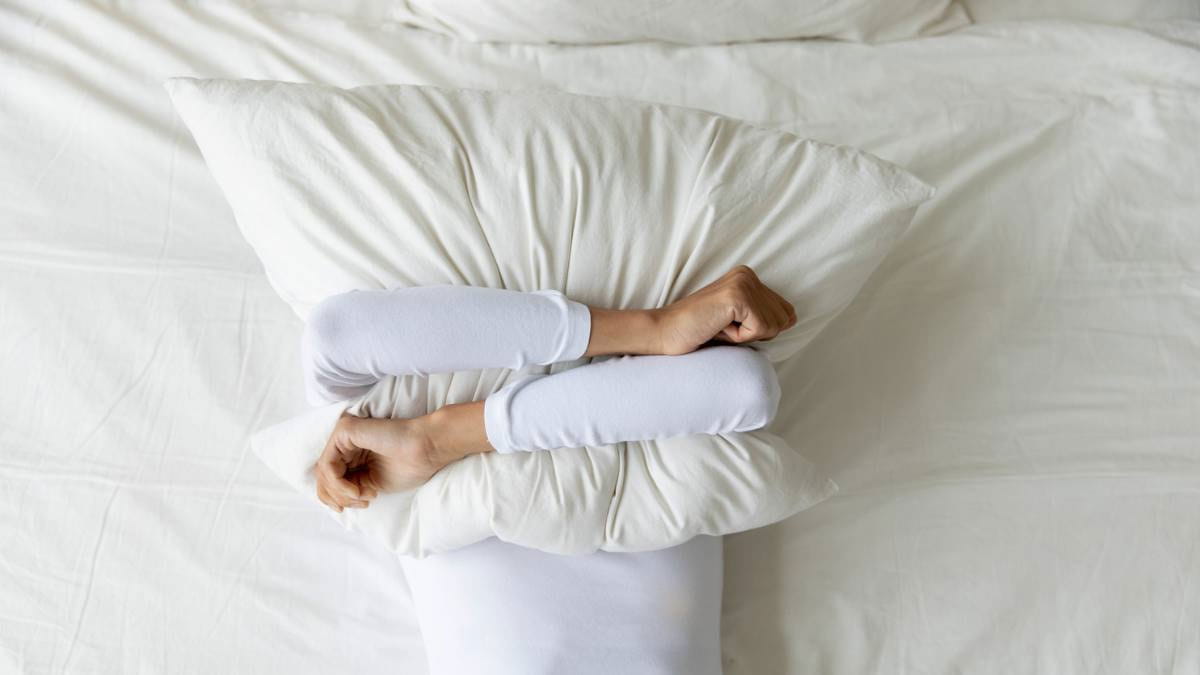Blog article
Feeling zonked? You may have a social hangover

December, January, and sometimes even February are traditionally months of back-to-back social events: workplace Christmas functions backed up by family gatherings, parties, and festivals. Depending on where you’re located, this might be the most active festive season you’ve had in a few years. And whether you’ve been drinking excessively or not, you may be feeling like you want to turn off your phone and climb into bed.
In the wake of social restrictions and lockdowns, it seems the the ‘social hangover’2 is no longer reserved for introverts.1 Many people are feeling ‘rusty’ or out of practice in social situations. If you were once a social butterfly who found that events full of people fed your energy reserves, you may be more confused than your introverted friends who are already familiar with this kind of fatigue.
In this article
- What is a social hangover?
- Signs and symptoms of fatigue
- When to say no
- How to say no
- The benefits of solitude
- When to seek help
What is a social hangover?
A ‘social hangover’ describes the experience of exhaustion after expending all your energy on socialising.2 As well as the fatigue and low energy, you may feel:
- Irritable
- Overwhelmed
- Stressed or snappy
Some people also report difficulty with focus, brain fog, headaches, insomnia, and feeling like everything takes more work than usual.2
Imagine if you went to the gym regularly, then couldn’t go for a year or two. If you then went back and tried to simply pick up where you left off, it would be hard, you may feel exhausted, and possibly in a lot of pain the next day. Similarly, your ‘social muscles’ may be experiencing some atrophy and may require gentle re-entry and retraining into social interactions.
Signs and symptoms of fatigue
If you’ve been sleeping erratically, eating differently, or overindulging (and who doesn’t at this time of year?) this can also contribute to fatigue. Stress that stems from family, finances, and planning is common during the holidays and the ‘new year, new me’ period, so it’s important to recognise the signs of fatigue.
Fatigue is an ongoing feeling of tired and weakness, and can involve physical, mental and emotional components.4 These may include:
- Chronic sleepiness
- Low motivation or ability to get things done
- Weak or achy muscles
- Dizziness and blurry vision
- Slowed reflexes, impaired judgement and decision making
- Moodiness and irritability
- Problems with memory, attention and concentration
To address fatigue effectively, you need to understand what’s causing it. If you’re feeling the fatigue of a ‘social hangover’, the next step is knowing when to say no, and then how to say no.
When to say no
As social creatures, we instinctively want to protect our place in the herd5 and the relationships that keep us there. This means we may say ‘yes’ to social events that we don’t really have the energy for, rather than risk the discomfort of saying ‘no’.
Your energy is limited, and there needs to be enough of it left for things that are truly important to you.
To understand what you should prioritise and what you should say no to, you might ask yourself the following questions:6
- Do I actually want to do this?
- Do I have the time and energy for this?
- How is this likely to make me feel?
- What are the benefits of doing this?
- What are the consequences of not doing it?
How to say no
Saying no to people, especially people you care about and value, isn’t easy. However, it is a highly beneficial life skill and one worth learning. Keep these tips in mind5 when you need to decline an invitation that won’t work for you:
- Be kind and respectful, and express your appreciation for the offer.
- Be clear – If you offer maybes and weak excuses, you create confusion.
- Give a brief explanation if you like, but keep it short, direct and to the point.
- Offer an alternative only if it’s appropriate and you mean it.
- If you’re overwhelmed or anxious, be honest with your friends and family about that.
For example, this could sound like:
"Thank you so much for inviting me! Unfortunately, I’m already really busy next week and don’t have the capacity for any more events, so I won’t be able to make it. But maybe we could catch up for dinner in early February?"
The benefits of solitude
It’s important to make time to recharge, free yourself from distractions, clear your mind and give your brain a rest.7 Spending time alone gives you a chance to think, work through your problems and focus on what’s important. It will help you build resilience and you may appreciate your relationships and time with people more when you give yourself intentional time away.2
"Make it a daily practice rather than a future plan: ideally, you should have 10–30 minutes a day of dedicated ‘you time’. Use this time to do something you love or that brings you joy, so that it’s not an obligation but something you look forward to."
A hub of helpful tips from Psychologists, Nutritionists, and Health Experts
We’ve put together a Mental Health Hub of resources, articles, videos, and easy insights into the healthcare system to help you take care of your mental health.
When to get help
If your symptoms feel unmanageable or are affecting your health, work or relationships, remember that help is available. When it comes to your mental health, prevention is better than a cure, so if you have any doubts at all, consider speaking to your GP about what resources are available to you.
Urgent support links and phone lines, 24 hours, 7 days.
- Lifeline: 13 11 14
- Suicide Call Back Service: 1300 659 467
- Beyond Blue: 1300 224 636
- MensLine Australia: 1300 789 978
- Kids Helpline: 1800 551 800
- Headspace: 1800 650 890
1 BBC News - Why am I exhausted after socialising?
2 Psych Central - How to deal with social exhaustion
3 BBC Worklife - Why we may have to relearn how to socialise
4 Better Health Channel - Fatigue
5 Psych Central - How and when to say no
6 Psychology Today - How (and why) to say no
7 Psychology Today - 6 reasons you should spend more time alone
This article contains general information only and does not take into account the health, personal situation or needs of any person. In conjunction with your GP or treating health care professional, please consider whether the information is suitable for you and your personal circumstances.



